Charles Cohen is a King of Reel Estate
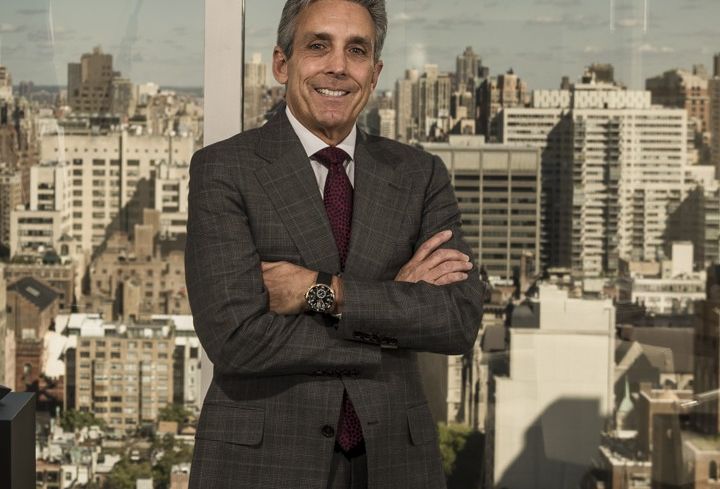
Oftentimes, when one of real estate’s boldfaced names starts talking about some under-valued patch of brownfield in Queens, or some over-valued glass palace along the park, a sparkle appears in their eye.
When I spoke to Charles Cohen, I saw that exact same gleam when I mentioned my fondness for the director François Truffaut, and Alfred Hitchcock’s Strangers on a Train.
There’s good reason why. Mr. Cohen, the 63-year-old scion of one of the greatest real estate families in the country, with more than 12 million square feet that he owns, has a parallel life in film. He just produced Hitchcock/Truffaut which a few days before our meeting was screened at the Telluride Film Festival. Its New York premiere is next week.
“You know, it’s funny. Kent Jones, who directed our film, doesn’t care for that film at all,” Mr. Cohen said about Strangers. “He doesn’t think that it’s a great Hitchcock film—but it is a great film.” A minute later, Mr. Cohen is talking up Stewart O’Nan’s new book West of Sunset about F. Scott Fitzgerald’s final Hollywood years, which he tried unsuccessfully to secure the rights to.
Mr. Cohen grew up in Westchester, majored in English at Tufts University and received a law degree from Brooklyn Law School, before tackling both “real property and intellectual property—or, unreal property,” in his words. Earlier this month, after an 18-month effort, he acquired the rights to 30 Merchant-Ivory films.
Which isn’t to say that real estate doesn’t consume him, or that his eyes don’t twinkle when he talks about his Red Building in Los Angeles, or about his four children (the oldest is 31—the youngest is 7).
Commercial Observer originally called Mr. Cohen for what was supposed to be a 15-minute interview for our Owners Magazine—which stretched out to nearly an hour-long meeting in person as the subjects veered from César Pelli’s design for the renovation of 475 Park Avenue South, to his one—stunningly successful—foray into writing.
Commercial Observer: Tell us the Cohen family story. 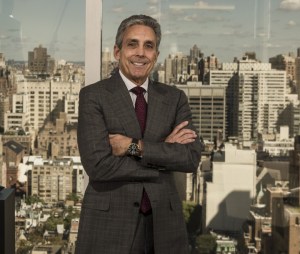
Mr. Cohen: My father and his brothers came from Virginia after World War II. They were the youngest Oldsmobile dealers in the United States. They did that for a few years because that was a growing business. After the war, the veterans came back and one of the first things they did was buy a car, buy a home, get a job. It was part of growing up and returning. They saw an opportunity in the real estate field and they built some low-rise rental apartments in Westchester and went on to work in New York. They developed more high-rise residential luxury rentals on Third Avenue than any other developer. On Second Avenue they did most of the corners. On East 74th and Third [Avenue] alone they did three of the four corners and the fourth is still J.G. Melon. They built on Second Avenue in the 70s, on Third Avenue in the 70s and the 60s, on East 57th Street off of First Avenue. They built on Charlton Street in the Village. They built on Amsterdam Avenue on the Upper West Side—all before 1980. And, in a way, they had a pioneering spirit.
What I’ve done since I started in 1979, was to buy buildings and redevelop them—renovate and reposition them. I’ve done that a number of times, from 3 East 54th Street to 622 Third Avenue, which was Blue Cross headquarters; I redeveloped the Swiss Bank Tower, which is now 623 Fifth Avenue; the General Foods Kraft Building [at 333 Westchester Avenue] in White Plains. I also redeveloped the D&D [Decoration & Design] building [at 979 Third Avenue and West] 59th Street and 750 Lexington Avenue.
I went out to the West Coast and not only redeveloped the Pacific Design Center but built another 400,000 feet of office space with César Pelli as the architect for the Red Building which is over half leased already. So I’ve been working as much outside of New York City as within it. I’ve become a national developer with an expertise in design centers for the home furnishings industry, which are merchandise-marts, as well as high-end Class A offices across the country.
Design centers—there’s gotta be hunger for that in New York.
There’s only one D&D building in the world. Any one major city can only handle between 500,000 and 600,000 square feet of high-end showrooms. [D&D is roughly 570,000 square feet]. After you start adding more than that, it becomes excess capacity and it just becomes difficult to fill. These are businesses that create bespoke goods, custom fabrics, furnishings, carpets, wall coverings, and they need space to show their wares. They can’t do it through the Internet alone. It’s a tactile business.
When you started law school, did you know you were going to go into real estate because it was a family thing?
I’d always been involved in real estate, from when I was young. I started showing apartments when I was 13 or 14 years old. I worked summers doing residential lease renewals, and I worked for a bank one summer. I worked for a shirt manufacturer one summer. I always worked. And when I was in law school, I always studied real estate law and real estate finance. So, [originally] I wanted to be a film producer when I got out of law school. I thought I would try that. It wasn’t meant to be. What I ended up doing was going to work for Chemical Bank. I had never taken a business class, so the first thing they did was send me to credit training which was a crash course in business [administration for an MBA]. I did that for a few months and then I went out doing loan workouts in the late 1970s for Chemical Bank. And I was pretty good at it. So much so that I segued from being a lawyer to taking the properties in-house, operating them and selling them and financing them for the bank. The best compliment I think I’ve ever had in my life was that I treated the bank’s money like my own.
And then my father and his brother were developing 805 Third Avenue in the late ’70s and there was an opportunity for me to learn development at the ground floor and I joined Cohen Brothers as general counsel doing all the leasing. I actually did the leases myself as an attorney. And then I segued into management, construction, finance and development. Everything.
What are you working on right now?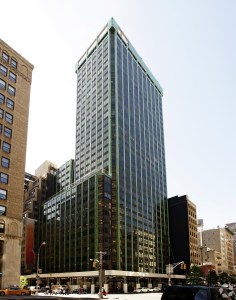
The big thing in New York City is that I’m finishing a long project, a very difficult renovation in 475 Park Avenue South, which I undertook over five years ago. It’s taken this long just to get it finished. César Pelli came in and created a great curtain wall for a brick building, and if you were to drive by that building you would not recognize it today. It’s nearly complete. And by the time you do that, it’s time to do over again what you thought you just finished.
Why did it take so long?
Well, it was a very complicated thing. The building has been completely occupied during the whole project and ground-up construction goes faster and is easier than renovation. A re-clad job has got its own challenges. Buildings shift over time. There are all kinds of other things. This was a building that was built with operable windows [and] we didn’t have a window-washing rake. There are all kinds of structural and engineering challenges. We created larger windows while everyone was doing their business. So it was really tough to pull off, but I’m very proud of the team and at the same time I was building a 400,000-square-foot office building in West Hollywood, Calif. So I was doing that at the same time. I’m only one person and I’m also running the other 12 million square feet.
You’ve said it’s very difficult in Manhattan right now…
To go and build a building? I just don’t think there’s much of an upside right now. I think the prices have been bid up so high. The reasons that the prices are high don’t necessarily translate into a return on investment. Properties are trading at prices that you cannot justify based on rents.
I don’t understand why I don’t hear this more from developers.
That’s not something a developer would tell you. That’s something that a property owner would tell you. When someone says that office buildings are worth $1,000 a foot, the rents don’t support that.
Then why do you think that so many people are willing to invest?
People throw money at other people to do things. A lot of investors from other places are very happy to have a piece of Manhattan and they wear that as a badge of pride.
Tell us about your family.
I have a son who is 27 who is a lawyer and he does real estate finance. I have a daughter who’s 31 who is married and teaches private school in New York. And I have a 9-year-old boy and a 7-year-old boy who started school last month. They[’re in] first grade and third grade here in Manhattan.
Do you want them to go into the family business?
I want them to do whatever makes them happy. I had the same privilege, so why shouldn’t they? There was never any pressure for me to do anything one way or another.
Spoken like a father. I went into the family business. Both my parents are writers.
You know what it is? You see what your family does. You see they take pride in what they’re doing and you have to have something—whether you are an orphan or you’re blessed with parents—there’s always someone who influences you. You just don’t know right away where that’s going to come from. I’m sure your father said, “Do what makes you happy. You’ll find what you could make a living out of.”
I can’t wait to work. I’m working all the time, in several time zones at the same time. I’m doing lots of things. I have a whole second career in media business, filmmaking, film distribution. And I’m very involved in classic film restoration and preservation. I’m doing all the development things, whether they’re real estate or non-real estate, that really fulfill me and open my eyes to all different kinds of subject matter that I wouldn’t otherwise have the opportunity to be exposed to. I’m renovating the Quad Cinema Downtown on [West] 13th Street in New York. I’m going to do something in South Florida with film and residential. Redoing public areas and office buildings, design centers, building tenant space. I have probably 50 projects that I’m doing at one time. And that to me is very exciting, and makes me want to work even harder. Do you know what I find? The more I pile on top of myself, the more efficient I become.
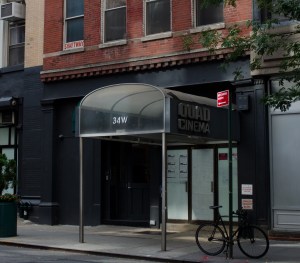
I think that’s a very hard lesson that people learn after they put themselves through the wringer.
The wringer is a fine place.
Tell us about the film projects
I’m the largest distributor of French films in North America right now. I’ve released almost 50 films. I have a new documentary on Alfred Hitchcock that’s coming out that was just at Telluride. It’s going to be in Toronto. It’s called Hitchcock/Truffaut [and it’s] about the book that Truffaut and Hitchcock did together. I produced that and I’m distributing that, and selling it throughout the world, except for France, where my partner has it.
What’s your favorite Hitchcock and your favorite Truffaut?
Oh, that’s like asking who’s your favorite child. Hitchcock, there are so many wonderful movies. But what’s interesting about this book that spurred this film, is that until Truffaut came as a writer for Cahiers du Cinema to interview Hitchcock, Hitchcock was not taken seriously as a filmmaker. He was considered a B director of mystery stories, who was never really accorded the respect that we now have for Hitchcock as a master of suspense and a great filmmaker.
Do you have a favorite Truffaut?
Again, it’s so hard. What’s your favorite meal? It’s so hard to pick one. There were different phases. He had a Hitchcock phase I thought was interesting. He was just a very personal filmmaker. And I think probably the reason why I gravitated toward filmmaking as a young person, making films in high school and college, is that my generation was all about filmmaking. It was not about writing the great American novel; it was about making the great American film. In the ’70s, you had Martin Scorsese, Paul Schrader, Peter Bogdanovich, Steven Spielberg, Francis Ford Coppola, and you had filmmakers that were taking the European auteur theory where the filmmaker is the author of the film, not just a hired hand. And where he would have a personal vision. There was so much political turmoil at that time and filmmaking was able to capture that and communicate it to the masses in a way that other medium couldn’t. After that came the video generation. And now we’re in the digital generation. It all builds on where it came from.
I actually think this is a great moment for television. Or at least the last 10 years have been.
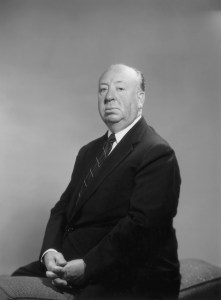
It’s a great time for scripted cable television. And that’s something that we’re getting into. We have a number of projects that we’re getting into right now. And we were talking about that earlier today. What’s interesting is that if you look into the Academy Awards of last year, there were eight films nominated—seven of them were independent films. There was only one studio picture. Broadcast television today is about the news, sports and reality television. That’s really what it’s about. There are some sitcoms and a few hour-long shows, but they’re very few. Everything else now is HBO, Netflix, Showtime, AMC, and this is a good thing because the stories that are deserved to be made into films are not being made by big studios anymore.
Do you ever do any writing?
I wish I had time. But I’m able to help put these productions together, and we produced a film that did very well last year called My Old Lady. It’s about meeting interesting people, exploring interesting subjects. There’s a part of me that wants to create buildings and there’s a part of me that wants to create work that people can take something away from. I wrote a movie trivia book in 1985. There was a publishing tenant that we had that published joke books. So I had this idea of doing a Q&A about movie trivia. The guy tells me, “That’s a terrible idea, stick with the real estate.” About six months later he calls me up and says, “Come on down to my office.” So I go down there and he says we’re going to play a game. The game was Trivial Pursuit. So I ended up doing a thousand questions and thousand answers on movies. The book was published Memorial Day 1985 and I sold 185,000 copies. So they came back to me and asked if I would do the sequel. I said no, I don’t do sequels. And they told me that I sold more books than Mark Twain did in his lifetime. That was the last book I wrote.



